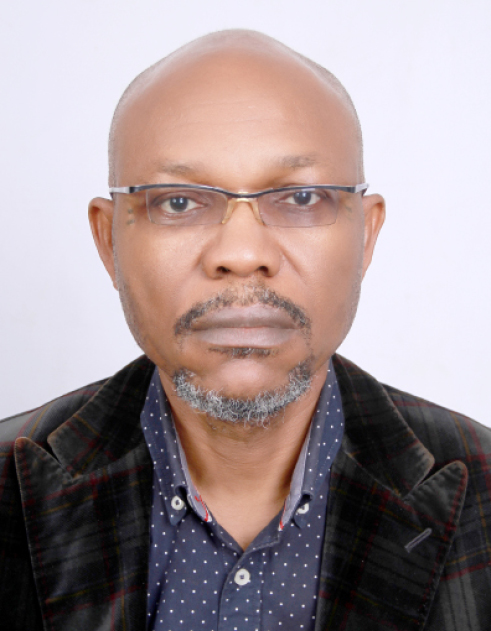The Chief Executive Officer (CEO) of Shungrilla Estates Limited, Engineer Emmanuel Chukwunonye Madu, says use of burnt rice husk in partial replacement of cement can bring down the cost of building projects. He also proffers solution to cases of building collapse in the country.
How do you feel being conferred as fellow of Nigeria Society of Engineers?
I feel very great, I feel fulfilled. In fact I see it as the ultimate in all my efforts all these years in engineering.
How is this going to motivate you in your profession, especially in the real estate sector where you are already a key player?
I am highly motivated by this honour in the sense that I have now felt that my efforts are now being recognized. So I am not going to rest on my oars because I am going to prove to the world that what I have been conferred, I am worth the honour.
Do you have any specific project in mind, one that, maybe is an inspiration from this honour?
What I intend to do now is I want to move the frontiers of real estate development through engineering. I am a trained engineer and by our training, we create solutions within our environments with the resources we find around us for the betterment of mankind. I see a typical problem of affordable housing in Nigeria as we speak and I want to use my training as an engineer, to provide affordable mass housing for Nigerians.
With the rising cost of building materials, how can you realise this mass housing project?
Engineering is design and development. First of all, you have to ask the question before you start seeking the solution. The question now is the teeming population need housing but the teeming population do not have the affordability. Now, how do I provide that housing to them at affordable cost? During my training, we were taught to think like scientists who ask questions from first principle. So I am going to deconstruct the question down to the first principle. What is a house? A house is made up of components, so how am I going to agglomerate these components in as cheap a way as possible? Then how am I going to get these components independently as cheap as possible? By the time you acquire these components as cheaply as possible and you assemble them into the housing product, you have solved 50 percent of the affordability problem.
Research that I have done in construction methods, in materials engineering, there are a couple of materials that could be used in construction that bring down the cost of building. Like I keep saying all the time, there’s what is called, burnt rice husks from our farms. When you get rice husks, you burn it, pulverize it into powder. It has what is called in engineering porcelain. It is a chemical found in ancient empire that you get from volcanic ash. Burnt rice husk has the same characteristics and that in effect will reduce the cement quantity that you will use in producing all the concrete materials that you will use in building construction. And with this I am going to reduce the cost of building construction.
Will the use of this material not compromise standards, in terms of structural stability and all of that?
I am a trained structural engineer and I understand what your concerns are. Use of burnt rice husk is not a displacement of cement or total replacement of cement, it is partial replacement of cement in a certain ration. We will still use cement in a way that it will give us the structural strength that we are looking for but you will reduce the use of cement in which you are now reducing the cost of building. Then you are also producing environmentally friendly houses by converting waste to wealth.
Apart from being an engineer, I am also a financial expert. I am running my Doctor of Philosophy (PhD) in Real Estate Development and Finance. So the financial aspect of it where you are talking about present value, you are talking about return on investment, so I do not need to make all the profit at a sitting. I can spread it out and still achieve my gain, thereby offering the product to the masses at a cheap price because I understand financial mathematics. The financial creativity is what I have, which a lot of developers do not understand, they want to make all their profit in the immediacy. You do not necessarily have to make money today, you can compound it overtime, by taking it little by little, then it becomes a win, win situation for all. So that’s another way I intend to impact on Nigerians.
As a structural engineer, has the spate of building collapses in Nigeria ever troubled you?
It has really troubled me and I have been asked that question a couple of times. Anywhere you see a building failure, there is a compromise somewhere either in design or supervision. Design will always affect choice of materials.
There has to be concerted effort whereby the government will work with the technical institutions and societies; I mean professional institutions so that the issue of proper supervision and procedure can be taken seriously, because what we do here, we are not quite following procedure. There is laziness and the professional institutions in the built environment are not sitting up to ensure that things are done properly. The government is also relaxed. There is no networking between the two sides, so there has to be real joint effort to produce procedure because wherever you see a building collapse, there is a process failure. So there is need to create a process and guide it jealously, that’s the solution.

 Join Daily Trust WhatsApp Community For Quick Access To News and Happenings Around You.
Join Daily Trust WhatsApp Community For Quick Access To News and Happenings Around You.

